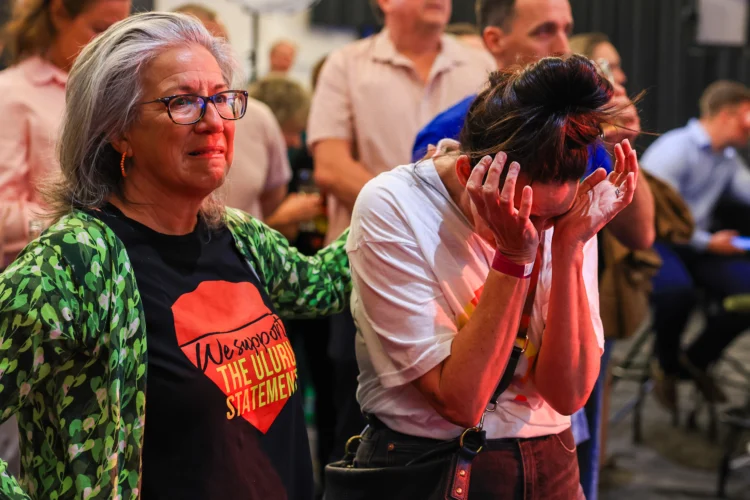By Martin Cole-
Australia has decisively rejected a landmark referendum to recognize Indigenous people in its constitution.
The proposed constitutional change, known as the Voice, sought to establish a First Nations body that would advise the government on issues affecting Indigenous communities.
The vote was deeply divisive, with “No” campaigners framing it as an act of preserving unity, while “Yes” advocates saw it as a historic opportunity for change.
The referendum’s outcome marks the end of a protracted and often bitter debate that has raised concerns about the lasting impact it may have on the nation.
At the heart of the referendum was the proposal to create a “Voice,” an Aboriginal and Torres Strait Islander body, which would advise the government on matters impacting their communities.
Proponents of the “Yes” campaign argued that the Voice could address the entrenched inequalities faced by Indigenous Australians.
These include alarming statistics such as a suicide rate nearly double that of non-Indigenous Australians and an overrepresentation of Indigenous people in the nation’s prisons.
The “No” campaign, however, presented a different perspective. They contended that the Voice would divide the nation, potentially creating different classes of citizenship and special rights. Their slogan, “divisive Voice,” found resonance with voters.
Campaign Dynamics and Claims of Misinformation
The debate leading up to the referendum was marked by strong emotions on both sides. “Yes” advocates accused the “No” campaign of dishonesty and spreading false information.
While claims of misinformation and disinformation proliferated throughout the campaign, the “No” campaign denied any intentional dissemination of false information regarding the proposal.
Reports of racist abuse directed at Aboriginal and Torres Strait Islander people surged during the campaign, and concerns were raised about whether Australia was entering a “post-truth” political era.
Historical Context and Rejection of Indigenous Recognition
This referendum marked the 45th attempt in Australia’s history to amend its founding document, the constitution. It was the second time that Indigenous recognition had been put to a national vote, with the last attempt occurring in 1999.
The result of the referendum is particularly significant in light of Australia’s complex history with its Indigenous population. For many Indigenous communities, the rejection may be perceived as yet another instance of historical disappointment.
In the wake of the referendum result, Australian Prime Minister Anthony Albanese called for national unity, emphasizing that the disagreement should not define the nation. He highlighted the significance of addressing the disadvantages faced by Aboriginal and Torres Strait Islander people.
However, for many “Yes” supporters, the outcome was devastating, and they expressed disappointment in the divisive nature of the campaign.
While all sides called for a period of reflection, Indigenous advocates expressed their resilience and determination to continue their pursuit of justice and recognition. They remain hopeful that, with time, Australia may reconsider the importance of recognizing its first inhabitants.
The referendum’s outcome, although final, is unlikely to put an end to the broader conversation surrounding Indigenous rights and recognition in Australia.
Image:Reuters




